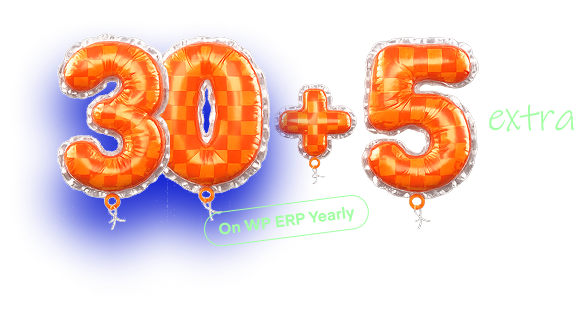ERP can feel overwhelming. All the systems, processes, and technical terms can make your head spin. Picking the right tools and planning resources effectively takes more than guesswork – it takes knowledge.
These books aren’t just theory. They break down complex concepts, share real-world examples, and offer practical strategies you can apply in your business to save time, reduce mistakes, and get results faster.
We’ve curated the best ERP books that make learning practical, easy, and even a little fun. If you’re new to ERP or looking to sharpen your skills, these reads will give you the guidance you need to plan resources smarter and work more efficiently.
Top 10 ERP Books to Boost Your Resource Planning
Looking for the best ERP books to improve your resource planning and manage business processes better?
Here’s a handpicked list of essential reads. These books cover everything from the basics to advanced strategies, and they are helpful for beginners and professionals alike.
- ERP: Making It Happen
- Concepts in Enterprise Resource Planning
- Enterprise Resource Planning: A Complete Guide
- Enterprise Resource Planning Systems: 12 Frequently Asked Questions
- Critical Success Factors in ERP Implementation
- Systems for Enterprise Resource Planning
- Enterprise Resource Planning: Concepts, Methodologies, Tools, and Applications
- Control Your ERP Destiny
- ERP Demystified
- ERP Systems for Manufacturing Supply Chains
Each of these books offers valuable insights into ERP systems, resource planning, and practical strategies you can apply in real business situations. Pick the ones that suit your level and start learning today!
01. ERP: Making It Happen
This book is a practical guide for anyone involved in ERP implementation. It focuses on how to plan, manage, and execute ERP projects successfully. The author explains the key steps in deploying ERP systems and shares real-world examples from different industries.
You’ll learn about project planning, resource allocation, and overcoming common challenges. It also covers strategies for aligning ERP systems with business goals, so the implementation actually improves efficiency rather than creating confusion.
If you’re looking for a book that combines theory with actionable advice, ERP: Making It Happen is a solid starting point. It’s especially helpful for managers, IT teams, and business leaders who want to understand ERP beyond just the technical setup.
Key Takeaways
- Step-by-step ERP implementation strategies.
- Tips to allocate resources efficiently and avoid common mistakes.
- Practical advice that works for managers, IT teams, and business leaders.
02. Concepts in Enterprise Resource Planning
Concepts in Enterprise Resource Planning explains the basics of ERP in a clear way. It breaks down how ERP works and shows how different modules connect with each other. The examples are easy to follow and relate to real business situations.
You’ll learn the main parts of an ERP system and how they help businesses run smoothly. It covers resource planning, process management, and how ERP can improve decisions. Each chapter focuses on one idea so it’s easy to understand.
If you want a book that makes ERP simple and practical, Concepts in Enterprise Resource Planning is a good choice. Beginners and professionals can both benefit from its clear explanations.
Key Takeaways
- Learn the basic parts and modules of ERP.
- Understand how ERP improves business processes.
- Real examples that show ERP in action.
03. Enterprise Resource Planning: A Complete Guide
Enterprise Resource Planning: A Complete Guide covers ERP from start to finish. It explains how ERP systems work and why they are important for businesses. The book uses clear examples to show how ERP can help manage resources and processes.
You’ll learn how to plan and implement ERP systems step by step. It also discusses common challenges and how to avoid them. Each chapter focuses on practical ideas that you can use in real business situations.
If you want a thorough guide that is easy to follow, Enterprise Resource Planning: A Complete Guide is a solid pick. It works well for managers, IT teams, and anyone who wants to understand ERP better.
Key Takeaways
- Step-by-step guide to ERP planning and implementation.
- Tips for avoiding common ERP challenges.
- Practical ideas that can be applied in real businesses.
04. Enterprise Resource Planning Systems: 12 Frequently Asked Questions
Enterprise Resource Planning Systems: 12 Frequently Asked Questions answers common questions about ERP systems. It explains how ERP works and why it matters in simple terms. Each answer is short and easy to understand.
You’ll learn about the main components of ERP and how they help businesses manage resources. The book also gives advice on choosing the right system and handling common problems. Real examples make the concepts easy to follow.
If you want a quick and practical guide to ERP, this book is a good choice. It is helpful for beginners and professionals who want clear answers without complicated jargon.
Key Takeaways
- Clear answers to common ERP questions.
- Guidance on choosing and using ERP systems.
- Practical examples to help understand ERP in real situations.
05. Critical Success Factors in ERP Implementation
Critical Success Factors in ERP Implementation focuses on what makes ERP projects succeed. It explains key areas to pay attention to and the mistakes to avoid. The examples are drawn from real business cases.
You’ll learn how to plan projects, manage resources, and handle challenges during ERP implementation. The book also covers strategies to make ERP systems work smoothly with business goals. Each section is clear and easy to follow.
If you want practical advice on making ERP projects successful, this book is a great choice. Managers, project leaders, and IT teams will find it very useful.
Key Takeaways
- Learn the key factors for ERP project success.
- Tips for handling challenges and avoiding mistakes.
- Practical strategies to align ERP with business goals.
06. Systems for Enterprise Resource Planning
Systems for Enterprise Resource Planning shows how to set up and use ERP systems in a practical way. It explains the steps involved and provides clear examples from different industries.
You’ll learn how to implement ERP, manage resources, and solve common problems. The book also covers how ERP modules work together to make business processes smoother. Each chapter is easy to follow and focuses on real-world solutions.
If you want a hands-on guide to ERP systems, this book is a solid pick. It is useful for managers, IT staff, and anyone involved in ERP projects.
Key Takeaways
- Step-by-step guidance on ERP implementation.
- Tips for managing resources and solving problems.
- Clear examples showing how ERP modules work together.
07. Enterprise Resource Planning: Concepts, Methodologies, Tools, and Applications
Enterprise Resource Planning: Concepts, Methodologies, Tools, and Applications covers ERP in a detailed but easy-to-read way. It explains how ERP works, the tools involved, and practical applications for businesses.
You’ll learn about ERP concepts, different methodologies, and how to apply them in real situations. The book also gives examples of tools and strategies that help improve resource planning and workflow. Each chapter focuses on clear, actionable ideas.
If you want a complete guide that explains ERP step by step, this book is a great choice. It works well for professionals, managers, and anyone looking to understand ERP systems better.
Key Takeaways
- Understand ERP concepts and methodologies.
- Learn how to apply ERP tools in real business situations.
- Clear, actionable ideas for better resource planning.
08. Control Your ERP Destiny
Control Your ERP Destiny focuses on helping businesses manage ERP projects effectively. It explains how to reduce risks, control costs, and get better results from ERP systems.
You’ll learn practical strategies to plan and monitor ERP projects. The book also shares examples of common challenges and how to handle them. Each section is straightforward and easy to follow.
If you want a guide that helps you take charge of ERP projects, this book is a strong choice. It is useful for managers, project leaders, and IT teams.
Key Takeaways
- Strategies to manage ERP projects successfully.
- Tips to reduce risks and control costs.
- Examples showing how to handle common ERP challenges.
09. ERP Demystified
ERP Demystified makes complex ERP concepts simple and easy to understand. It explains how ERP works and how it can help businesses manage resources better.
You’ll learn about the main ERP modules, how they connect, and practical ways to use them. The book also gives real examples to show how ERP can improve efficiency. Each chapter is clear and focused on practical knowledge.
If you want a book that simplifies ERP and provides actionable insights, ERP Demystified is a great choice. It works well for beginners and professionals alike.
Key Takeaways
- Understand the main ERP modules and how they work.
- Learn practical ways to use ERP to improve efficiency.
- Real examples that show ERP in action.
10. ERP Systems for Manufacturing Supply Chains
ERP Systems for Manufacturing Supply Chains focuses on using ERP to manage manufacturing and supply chain processes. It explains how ERP helps businesses plan resources, track operations, and improve efficiency.
You’ll learn practical strategies for implementing ERP in manufacturing. The book also covers common challenges and ways to solve them. Each chapter provides clear examples that are easy to follow.
If you want a book that shows how ERP works in manufacturing and supply chains, this is a solid choice. Managers, supply chain professionals, and IT teams will find it useful.
Key Takeaways
- Learn how ERP supports manufacturing and supply chain management.
- Practical strategies for ERP implementation in production.
- Examples showing how ERP improves efficiency and resource planning.
Top Trending FAQs on ERP Books
Look for books that focus on your primary business model, such as discrete manufacturing or professional services. While general ERP books cover foundational principles, industry-specific titles will address unique requirements like compliance, supply chain logistics, or project-based billing that generic guides might overlook.
Yes, because the core logic of resource planning—such as data integrity, departmental silos, and change management—remains the same. While the technical “how-to” may change from on-premise to cloud, the strategic frameworks found in classic ERP literature are essential for a successful implementation today.
Ideally, no. Technical teams should focus on system architecture and data migration guides, while management should prioritize books on organizational change and ROI. Having both groups read different but complementary books ensures that the technical execution aligns with the high-level business goals.
Most ERP failures are due to human factors, not software bugs. Books that focus on implementation strategy prepare your team for common pitfalls like “scope creep” and resistance to change. Educating your leadership through these resources significantly increases the chances of a smooth, on-budget transition.
If you need more current information, supplement your reading with vendor whitepapers, case studies, and interactive webinars. Since the software landscape moves faster than the publishing industry, these digital resources provide real-time updates on AI integration and mobile ERP features that newer books may not yet cover.
Take Your ERP Skills to the Next Level
We believe you can take your time and give a shot at each of the ERP books. Then research which ones have the most potential to aid you in reaching your goals. Hence, one short piece of advice our experts want to share with you.
There are no final words in learning. And if a book seems great, there are more great books we may never heard of yet.
To establish better resource planning, there’s no other way than learning. Now that you’ve got through our list, what do you think? Do you have any particular books in mind? Let us know. Don’t forget to share your views in the comment section below!













Hey , i read your blog it is very informative and helpful for many of us . Thankyou for sharing it .
Hello,
Very glad to know that you’ve liked our article.
Take care!